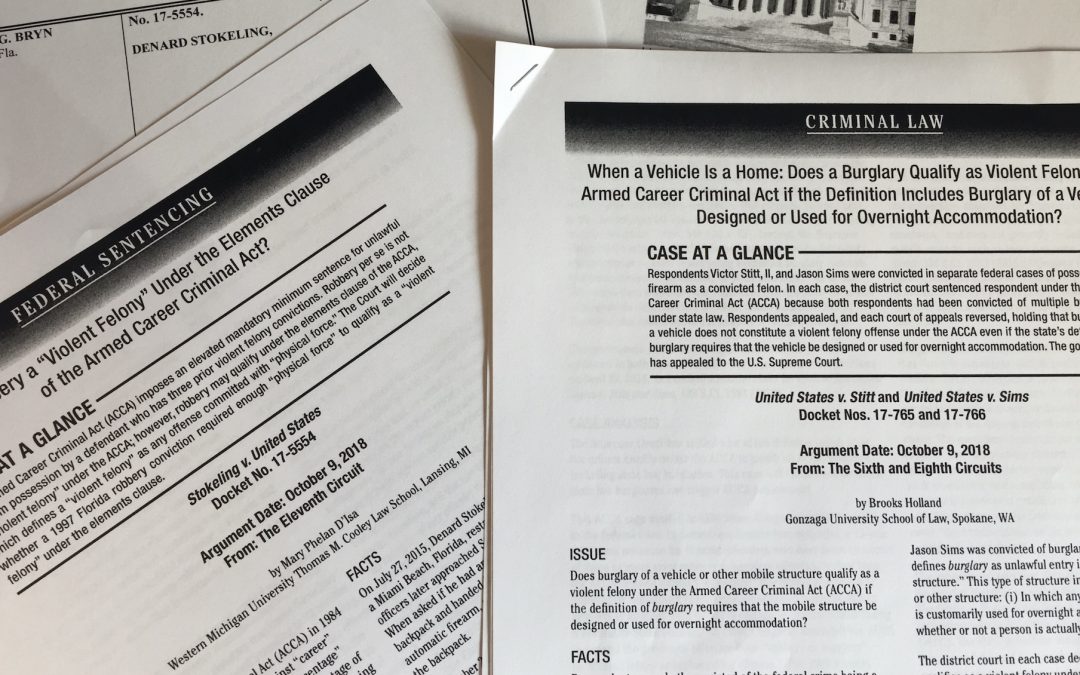WASHINGTON — Associate Justice Brett Kavanaugh joined the other eight Supreme Court Justices for his first oral arguments on Tuesday, hearing two cases concerning a 1984 crime bill that triggers enhanced sentencing for some repeat offenders. Chief Justice John Roberts welcomed Kavanaugh and wished him “a long and happy career.”
On Saturday night, during his private swearing-in ceremony at the Supreme Court, some protesters pounded on the front door of the building while others climbed on statues abutting the stairs, showing their anger that the judge won Senate confirmation despite sexual assault allegations raised against him by Dr. Christine Blasey Ford.
On Tuesday, the plaza in front of the Court was barricaded and Supreme Court police stood guard. On the sidewalk about two dozen women stood in a line holding signs, some wearing the red costumes made famous by the book and TV series “The Handmaid’s Tale.”
Visitors ordinarily have the option to observe oral arguments for three minutes or to stay for the entire hour. The three-minute line was eliminated on Tuesday due to increased demand for seats, according to the court’s Public Information Office.
Collegiality among the justices was abundant, with Kavanaugh referring to Justice Elena Kagan’s comments several times. As the newest addition to the Court, Kavanaugh sits on the outside chair, farthest to the left of Roberts. Kagan sits next to him.
Kavanaugh and the other justices hear argments in two cases questioning parts of the Armed Careeer Criminal Act. In the first case, the justices discussed what constituted a “violent felony” that would trigger enhanced sentencing under the law.
In Stokeling v. United States, the defendant, Denard Stokeling, had three Florida convictions in 1997 from September through February. One was an unarmed robbery.
If the unarmed robbery was taken into consideration under the ACCA, his sentence for a 2015 burglary of a restaurant where he worked would rise from 70 to 87 months to 180 to 188 months. Stokeling also possessed a firearm illegally, which he surrendered to police.
“The purpose of ACCA is to predict future violence with a gun for people who possess a gun, who would be the people that would be willing to pull a trigger and kill someone,” said Brenda Bryn, Stokeling’s attorney. She contended that Florida’s robbery definition was so broad it applied to instances of theft where no force was used.
Assistant to the Solicitor General Frederick Liu argued that any need for resistance by a victim constituted violence on the part of the robber.
Kagan seemed to disagree. “I guess the ordinary English view is something like, look, when I’m walking down the street and somebody puts a gun in the air and says, ‘Give me your money,’ that I know, I understand to be a violent offense,” she said.
“But, when I’m walking down the street, and somebody grabs my handbag, I’m not happy about that, but it just doesn’t have that violent aspect of it. … And this is a state that defines robbery so broadly that you tell me it basically includes every bag snatcher.”
In the second cases, the issue was whether a vehicle could be considered “habitation” if someone was living in it. The ACCA provides enhanced sentencing for burglary of a habitation, triggering the “violent crime” minimum sentencing.
The oral arguments revealed what seemed to be frustration among the justices with the ACCA itself. At one point, Justice Stephen Breyer said, “And a third possibility is that the Department of Justice asks Congress to rewrite the statute, which is exactly what Ms. Bryn said.”
“Have you thought about this over at the department?” he asked, “Well, you have to prepare these cases. Have you though about it? And, if you have a better approach than I’ve just outlined, I’m – my ears are open.”

